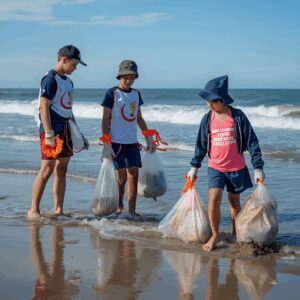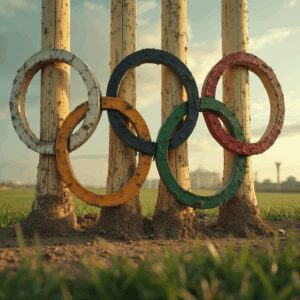Global sport wakes up to political reality
The invasion of Ukraine by Russia during the past week, after weeks of the world being warned of its seeming inevitability given the Russian leader’s obvious preparations for same, has led to a response by global sport that was as unpredictable as it has been unprecedented.
Athletes, long recognised as the reason we have sport and the existence of sports organisations and attendant competitions, whether amateur or professional, took the lead, leaving many of the respective international sports federations and institutions like the International Olympic Committee (IOC) and their respective members, all following in their wake.
The global sport response has rocked the world to such an extent that many are still pondering from whence came this decidedly positive awakening amongst athletes, many of whom have been schooled in quietude and that fallacy that sport must resist any temptation to be involved in politics.
Politics is a way of life in every society known to man. This is because it involves decision-making, who decides who gets what and when.
From its origins, sport has always been political. The very decision by those with the requisite resources to suggest to the world that they would establish sports clubs and associations to organise in a formal way, sport competitions, was a major political phenomenon. This reality was nonetheless masked by the emphasis on philanthropy and amateurism, formulated by the wealthy who, unwittingly, thought themselves appropriately placed to impose their world view on the international community.
The association of the World’s Fair with the early Olympics may well be seen as an early understanding of the power of sport to promote economic advancement. In 1984, Los Angeles’ hosting of the Summer Olympics facilitated the establishment of the TOP Programme of long-term lucrative financial sponsors as well as similarly lucrative television rights, both of which engender the continuing financial largesse of the IOC.
The IOC has, for a very long time, and perhaps unfortunately so, seen its political power emanating from the aforementioned financial largesse and has sought to wield the influence that accompanies it.
Over the recent past, however, changes have been looming on the horizon so much so that this is what may have forced IOC President, Thomas Bach, of engaging in a pre-emptive strike on assuming office when he brought forth his ‘Olympic Agenda 2020’. The seeming inability to reap the anticipated results as initially conceived may well have given rise to its extension to what is now rather simplistically labelled, ‘Olympic Agenda 2020 Plus Five’.
The recent Winter Olympics in Beijing, China, and the subsequent, current Russian invasion of Ukraine, may well have exposed the harsh reality of an inadequate preparation of the IOC for the politics in which it has always been involved, but unwilling to admit.
Athletes take the lead
For far too long athletes have been the plaything of the leaders of sport. We are all too familiar with this in the Caribbean where our West Indies cricketers of old had to look after their own medical bills even when the injuries occurred while representing the region.
Some may recall the great emphasis that the founding fathers of the Olympic Movement and those administrators from the same Europe that colonised the world determined the values attendant to sport as they saw it. They imposed amateurism on the very sport that they were using to fatten the coffers of their respective organisations and enhance their own respective statuses in society.
Once sport proved economically viable, the fight against amateurism was taken on board as their own by the once-stout defenders of the concept. The bottom line was the single most important phenomenon that was important even as values were and still are being paraded as the ‘altruistic’ rationale.
Thankfully, athletes have learnt of their value. They have come to the recognition that they are today’s hottest commodities and, as happened with the NCAA recently, they must be adequately compensated for their work from the revenue that their performances generate.
Today, Russian athletes have found the invasion sufficiently distasteful to force them to speak out. Newly crowned Tennis world #1, Danil Medvedev, of Russia is quoted by The Times of India as saying, “Today I want to speak on behalf of every kid in the world. They all have dreams, their lives are just starting, so many nice experiences to come…That’s why I want to ask for peace in the world, for peace between countries. Kids are born with inner trust in the world, they believe so much in everything, in people, in love, in safety, in justice, , in their chances in life.
Let’s be together and show hem that’s it true, because every kid shouldn’t stop dreaming
Chess great, Gary Kasparaov was strong in his expression of disgust in Russia’s action.
As far as Ukrainian sports personalities are concerned, Olympic gold medalist and former world boxing champion, Wladimir Klitschko, Manchester City’s Zinchenko have spoken out in strong terms.
In Football, players at Manchester United have lent their voices to the growing list of athletes condemning the invasion while the team’s management abandoned its very lucrative sponsorship deal with Russian airline, Aeroflot.
Media source, The Hill, wrote, “Ukrainian NBA players Svi Mykhailiuk and Alex Len issued a joint statement on Thursday condemning the attack.
‘A great tragedy befell our dear homeland Ukraine. We categorically condemn the war. Ukraine is a peaceful, sovereign state inhabited by people who want to decide their own destiny,” the two players said. “We pray for our families, friends, relatives and all the people who are in the territory of Ukraine. We hope for an end to this terrible war as soon as possible…Dear fellow Ukrainians, hold on! Our strength is in unity! We are with you!’ “
Across the world, athletes in different sports are against playing against Russia in any form of competition. They are aware that Russian athletes will suffer but deem it necessary to send a very clear message to the government and people of the country that an invasion of a nation striving to forge its own path to development in these times is completely unacceptable.
One would hope that athletes around the world would take this current
circumstance as more reason for them to continue along a path of independent thinking, closer collaboration and the pursuit of fair play in their dealings with administrators, coaches and agents in the future.
International Sports Federations
To be fair, the International Association of Athletics Federations (IAAF) now World Athletics, was perhaps the first of the fraternity of the international sports federations (IF) to take a firm stand on Russia when it was discovered from the early investigative reports by Professor Richard McLaren that highlighted systematic State-sponsored doping in sport.
While the IOC and the World Anti-Doping Agency (WADA) clashed at the IOC Session ahead of the Summer Olympics in Rio de Janeiro, Brazil, in 2016, the international media had a field day and at times may well have wondered whether Russia had some sort of hold over the Olympic Movement and its leadership.
According to an Associated Press (AP) article dated 2 August 2016, noted, “The International Olympic Committee and the World Anti-Doping Agency clashed again Tuesday over the allegations of state-sponsored doping in Russia that have rattled the Olympic movement and created chaos ahead of Friday’s opening ceremony in Rio.”
According to the AP, Bach began the Session “by seeking formal backing for the board’s decisions on the Russian crisis. After a debate lasting more than two hours, Bach asked for a show of hands, and only one of the 85 members — Britain’s Adam Pengilly — voted against his position. Despite evidence of a vast, state-organized program involving Olympic sports in Russia, the IOC board rejected calls for a total ban and left it to international sports federations to decide on the entry of individual Russian athletes for the Games.
There are some who found that perhaps it may well be that Bach may have found himself too close to Russian President, Vladimir Putin, for whatever reason, or that he may have been basking in the fact that he may have been perceived as something of ‘a world leader on a mission’.
There may also have been some who felt that the IOC was not fully supportive of the stance adopted by World Athletics to ban athletes from the Rio Games and impose sanctions and conditions going forward that, to this day, still very much in place. The suggestion is that the IOC’s leadership may well be seeing itself as leading global sport and that one IF ought not to be allowed to be different.
In any event, World Athletics has held firm. The leadership has the overwhelming support of the membership.
The invasion of Ukraine by Russia has literally backed the IOC into a corner and so too several IFs.
For sure, the forthrightness of athletes from different sports that sees them placing the value of human life and principle ahead of all else, including their revenue streams in some cases, is a remarkable advance for the cause of those we trumpet as the core of sport. This has been long in coming and the IOC and IFs find themselves lagging behind in mounting an appropriate response to what is a crisis of global proportions.
One IF after another has come out vocal. Almost all have thus far determined that Russia will not be entertained in any of their pending competitions and activities, for the foreseeable future. This leaves the Russian ploy of using sport for international recognition out of wack and the nation, in isolation.
Not even the IOC has raised the matter of athletes being ‘collateral damage’ in this matter. The seriousness of the current situation has perhaps occasioned a change of heart.
The IOC and IFs may well now be thinking of how to stem the tide of athlete power going forward. For now, however, they do well to make statements in the same vein as their athletes, joining in the growing chorus of condemnation of Russia and Belarus, its apparent political surrogate.
The Vincentian response
Team Athletics St Vincent and the Grenadines and the National Olympic Committee have issued media releases condemning the Russian invasion of Ukraine. The situation is deemed to have warranted a strong reaction at the local and regional level.
Indeed, in the Americas, St Vincent and the Grenadines has played a leadership role, appealing to members of the region’s sports fraternity to speak out against an obviously incredulous action on the part of Russia and the support being given to this by Belarus.






